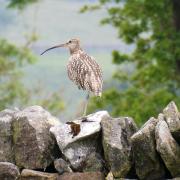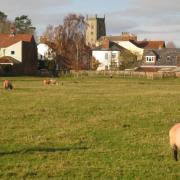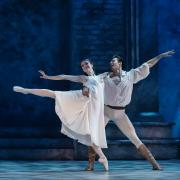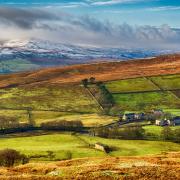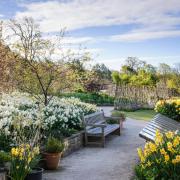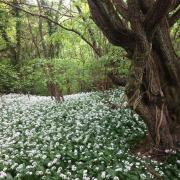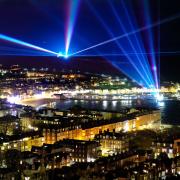City of culture legacy grows from strength to strength, as Martin Pilkington discovers

When Hull was named UK City of Culture for 2017, a defeated rival bidder sneered that the city’s residents ‘had to have something to look forward to’. That ignored – among many other things – the cultural riches both heritage and contemporary that helped win the accolade. Hull, a year and more on from the 2017 extravaganza, can enjoy the lasting last laugh; those riches having been brought into the national and international limelight, added to and harnessed the city’s continued growth and transformation.
‘In terms of numbers, and awareness and raising our profile, the programme that we put on really shone a spotlight on the city, from the destination and visitor point of view,’ says Anthony Yates of Visit Hull and East Yorkshire. ‘We’ve seen a huge jump in visitor spend, and equally importantly more jobs being created in the leisure and hospitality sector in the city.’
He cites existing cultural resources like Hull Truck, and the revamped Ferens Gallery that hosted The Turner Prize in 2017, but also new amenities like the Bonus Arena, a 3,500-seat venue for major performers and the increasingly important conference market, and the radically revamped New Theatre – all legacies of the capital of culture year.
The way culture and regeneration have been interlinked, and continue to drive the city forward, is seen at the Humber Street Art Gallery in the Fruit Market. ‘The gallery was set up, originally for just 10 months by the Hull City of Culture Company as part of its wider ambition to showcase every art form in the celebrations, with contemporary art as part of that,’ says its senior curator John Heffernan. It has now obtained external funding to continue its work for at least another three years. ‘Part of our remit is to introduce the very best of contemporary arts, working with artists of international standing, but also to work with local artists, not just for exhibitions, but through workshops, events.’ And, he says, ‘We benefit from the network the gallery has with other contemporary arts spaces outside the city. We want artists here to get their work known outside of Hull.’

The gallery is a symbol of change in a revitalised area. ‘Our building is a former banana ripening warehouse,’ says John, ‘The developers Wykeland Beal have worked in partnership with the city council to regenerate the whole fruit market district, a fascinating part of the city, with a lot of history, now full of new businesses and homes.’ Those businesses include restaurants like J Johnsons, a vibrant eatery that has added to the buzz of the area.
Hull City Council mentioned Philip Larkin’s poem Days in its ambitions for the city of culture year, hoping each day of Hull 2017 would make a difference to a life in the city, the UK and the world, underlining Hull’s cultural credentials and its links worldwide as a port. Larkin worked at Hull University for 30 years, his most creative as a poet. It wasn’t perhaps coincidental that after much lobbying by the Philip Larkin Society he was granted a place in Poets’ Corner in Westminster Abbey just before the 2017 events began. The group, established in 1995, 10 years after Larkin’s death, has long been instrumental in celebrating his genius, and draws visitors to Hull via the Larkin trail, 25 points associated with his life and work that fans can follow through the city, one of them the society’s own creation. ‘We raised all the money, some £80,000, to pay for the statue of Larkin at Hull station, and got the sculptor Martin Jennings to do it, the very best person for the job,’ says James Booth of the society. The group contributed to the 2017 events and publicity for them by attracting Grayson Perry to speak at its AGM.
Hull’s cultural heritage goes far deeper than the 20th century of course. Poet Andrew Marvell, like Larkin commemorated with a statue here, was thrice the city’s MP. And the Hull Literary and Philosophical Society (of which Larkin was a member) has been providing intellectual inspiration to the city since 1822. ‘Back then it was attempting to bring education to those without access to it,’ says current president Susan Chambers. ‘The philosophy was natural philosophy – the emerging sciences and technologies at the time; and it also met the area’s cultural needs in art, music and literature.’ The society has attracted famous speakers over the years, including Oscar Wilde, Henry Morton Stanley and Anthony Trollope; and it continues to draw big names today.
Like Larkin the author Val Wood, brought up in Hull, has a trail – two in fact – in and around the city, following sites mentioned in her novels. She frequently uses Hull locations like the Georgian buildings in Albion Street in her historical romances, and her latest, A Place to Call Home, is largely set in the industrial area near the River Hull. Val was recently honoured by Hull University. ‘I was given an honorary doctorate, which was absolutely wonderful. The citation mentioned my dedication to literature, and perhaps they thought it was appropriate that they gave it to me in 2017 because I write about Hull, and 2017, of course, was all about Hull.’
There was much to celebrate in Hull in 2017, rooted in what came before. But the place and its people are the city looking forward not back, as Anthony Yates says: ‘Absolutely Cultured the legacy team that has come out of 2017 continues to go from strength to strength. Look at the city and how it has developed - the Fruit Market transformed beyond recognition; the new Trinity Market; the Bonus Arena, the public realm across the city unrecognisable from 18 months ago; all leading up to 2017, during 2017, and coming out of 2017, Hull has become a very different city, a more confident city.’




